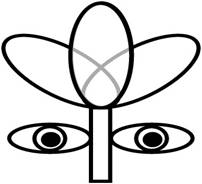About Us
What is Fusion Ecology?
Biological communities have been and will always be in flux. However, current human-impact is adding another dimension to this: the dimension of unnatural speed. The import of non-native organisms potentially causing biological invasions, change of traditional land-use and ongoing climate change are impacting the structure and composition of biological communities at an unprecedented rate.
Fusion ecology* is addressing precisely this formation of Novel Communities, consisting of species that never occurred together and are created through fast paced and relentless human impact. The most central and basic question our lab is asking, is whether and how these novel communities are different from “old” communities that have been around for a longer time. In this respect, we are searching for signs of common evolution within old communities that are absent in novel ones. We are testing whether interactions between new neighbors are different from interactions among old neighbors.
An understanding of the nature of novel communities might allow us to predict future changes and can lead to actions that protect key elements of nature: biodiversity and the flow of natural processes.
At present, our research is cast rather widely as we are investigating various taxa (mostly plants and birds) in a variety of ecosystems (ranging from urban environments to deserts). Within these areas we are concentrating on the four research topics that are listed below.
(*Fusion ecology a term coined by James Gorman in the New York Times in 2005)



